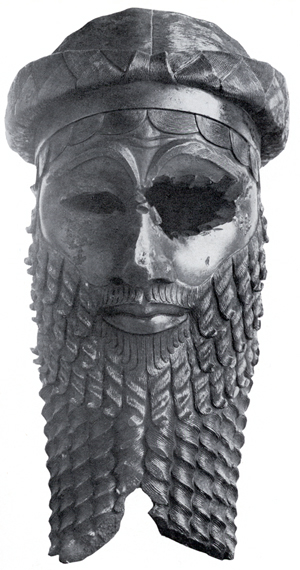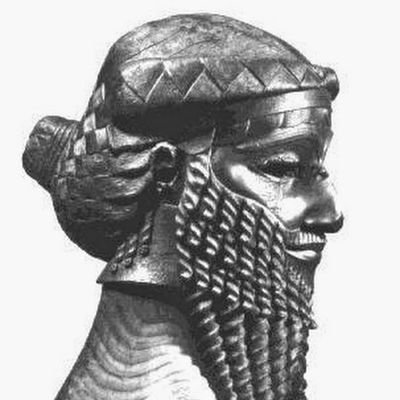Mesopotamia
4. the Akkadian Empire
4.1. Political Environment
Sargon of Akkad (also known as Sargon the Great, Shar-Gani-Sharri, and Sarru-Kan, meaning "True King" or "Legitimate King") reigned in Mesopotamia from 2334 to 2279 BCE. He is equally famous today as the father of the great poet-priestess Enheduanna. He was born an illegitimate son of a "changeling", which could refer to a temple priestess of the goddess Innana (whose clergy were androgynous) and, according to the Sargon Legend (a cuneiform clay tablet purporting to be his biography) never knew his father. His mother could not reveal her pregnancy or keep the child, and so he was set adrift by her in a basket on the Euphrates River where he was later found by a man named Akki who was a gardener for Ur-Zababa, the King of the Sumerian city of Kish. From this very humble beginning, Sargon would rise to conquer all Mesopotamia and create the first multi-national empire in history.
"My mother was a changeling, my father I knew not,
The brother of my father loved the hills,
My home was in the highlands, where the herbs grow.
My mother conceived me in secret, she gave birth to me in concealment.
She set me in a basket of rushes,
She sealed the lid with tar.
She cast me into the river, but it did not rise over me,
The water carried me to Akki, the drawer of water.
He lifted me out as he dipped his jar into the river,
He took me as his son, he raised me,
He made me his gardener" (Bauer, 95).
The Akkadian Empire was the first political entity to make extensive and efficient use of bureaucracy and administration on a large scale and set the standard for future rulers and kingdoms. His story was long known throughout Mesopotamia where, in time, he came to be considered the greatest man who had ever lived, celebrated in glorious tales down through the Persian Empire, along with his grand-son Naram-Sin.
The historian Paul Kriwaczek sums up the impact Sargon had on later generations in Mesopotamia, writing, "for at least 1,500 years after his death, Sargon the Great, founder of the Akkadian Empire, was regarded as a semi-sacred figure, the patron saint of all subsequent empires in the Mesopotamian realm". Even so, where he came from and even his actual name are unknown.

